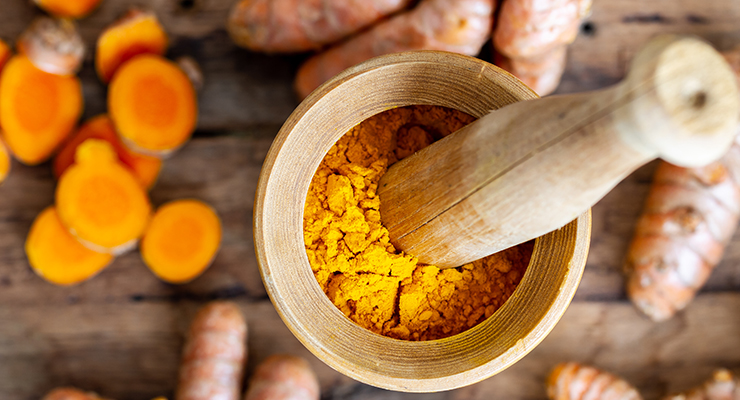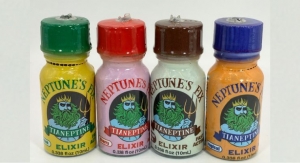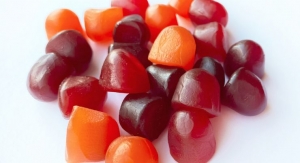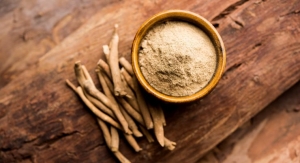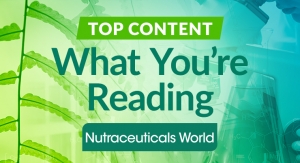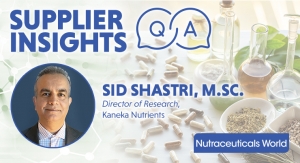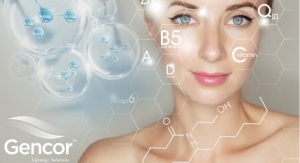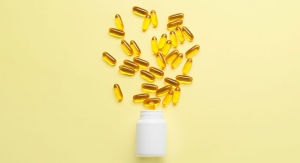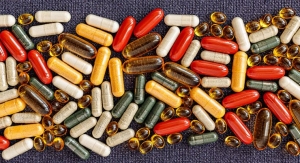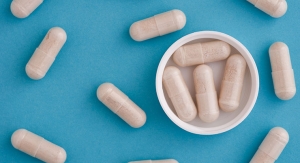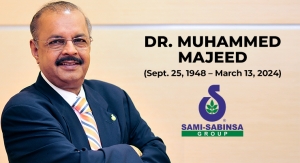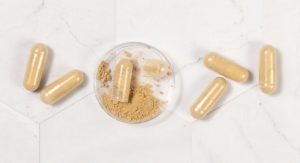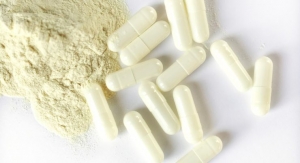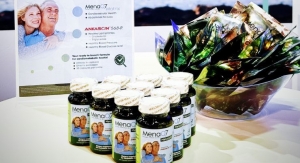07.23.21
Pharmacokinetic data supported a 39-fold-enhanced bioavailability of free curcumin claim for DolCas Biotech, LLC’s Curcugen curcumin extract. The 17-subject randomized, double-blind, crossover study published in the journal Medicine evaluated the dispersible, 98.5% native turmeric (50% curcuminoid concentrate) formulation, against conventionally extracted C-95 (also a 95% curcuminoid extract) to determine the degree of enhanced absorption by the patented brand.
In concentrating curcuminoids to a 50% standard, Curcugen uniquely co-extracts turmeric-native resins that are polar in nature and offers the patented “Self-D” bioenhancer-like benefits that facilitate dispersibility. Owing to its 98.5% turmeric-derived base, Curcugen also prioritizes the presence of other turmeric natives, like polysaccharides and essential oils, which, through enhancement of the brand’s dispersion characteristics, contribute additional value to both bioavailability and bioactivity.
Prior research suggests that enhanced free curcumin is directly linked to the compound’s ability to circumvent the inherent resistance unformulated curcuminoids encounter entering the bloodstream and target tissues. Free curcumin analysis is a direct measurement of the proportion of curcumin ingested that is absorbed across the intestinal barrier and found intact in the plasma.
“While Curcugen is not the first curcuminoid ingredient to assess for free curcuminoids, it is one of the first to assess it within the context of a pharmaceutically-aligned study protocol,” said Dr. Shavon Jackson-Michel, director of medical & scientific affairs for DolCas. “Dispersion was the principle mechanism enacted to overcome the challenge of curcuminoid absorption.”
The Total Curcuminoid analysis of individual and composite curcuminoid analogues—specifically total curcumin, total demethoxycurcumin, total bis-demethoxycurcumin, and total curcuminoids—also was assessed in this novel study. The enhanced absorption (as determined by the difference in area under the curve) over the study duration yielded enhanced bioavailabilities of 49.5-, 43.5-, 46.8-, and 52.5-fold, when compared to the C-95 reference.
“Curcuminoid conjugates are intestinal and liver metabolites and considered both inactive and intermediate in terms of their functionality. To be effective, they must be liberated, and while this process is simulated predictably outside the body, the literature suggests that inside the body the process is highly variable,” Jackson-Michel said. In fact, the natural process of deconjugation occurs under distinct conditions, inclusive of, but not limited to, an inflamed state or lowered pH, and in the presence of certain white blood cells, or in kidney tissues. This study sought to distinguish this unsettled concept of free vs. total curcuminoid analysis and its relationship to marketed claims that must be evaluated contextually.
Tetrahydrocurcumin, is a metabolite of curcumin that, unlike the no-to-low activity curcuminoid-conjugates, expresses notable bioactivity, especially via its antioxidant and anticarcinogenic activities. Metabolized from curcumin in the liver and among the bacteria present in the gut, it is not naturally present in turmeric nor derived from basic extraction methods. As such, tetrahydrocurcumin was additionally assessed in this comparative bioavailability study. When compared to C-95, it was found in 31-fold higher quantities in the plasma with Curcugen.
“Given C-95’s known resistance to absorption, equivalent concentrations of curcuminoids between it and Curcugen were assessed in accordance with acceptable pharmaceutical guidances for bioavailability study,” said DolCas CEO K. G. Rao.
The study was designed to highlight and align with published best practices in curcuminoid pharmacokinetics, including minimum and matching dosing between test and reference products, analyte selections and proper definitions (i.e. free vs. total; analogues vs. metabolites). This was inclusive of preparation methods both with and without exogenous deconjugation steps; the need for internal standards use; neutral fasting and feeding conditions for subjects; and the use of plasma analysis instrumentation that offered the best accuracy and consistency.
“Curcuminoid bioavailability also was assessed over a 24-hour period—a rarity among studies backing other bioavailability-enhanced curcumin formulations on the market,” Jackson-Michel said. “The 24-hour assessment, evidenced a primary peak of enhanced free curcumin at approximately 1.5-2 hours after intake; a moderately high second peak at about 8-hours post intake; and low but notably higher plasma levels over the duration of the 24 hours when compared to C-95.”
Bioavailability enhancement above and beyond the 95% standardized curcuminoid extract is a function of formulation. Bioavailability-enhanced curcuminoid formulations have benefited from an array of applications, including natural, but non-turmeric native bioenhancers such as piperine, or emulsifiers such as lecithin-derived phospholipids. Also, binders and dispersants, such as cyclodextrin, or synthetic pharmaceutical actives like polysorbates have been used. Certain extra processes sometimes have been employed to benefit bioavailability enhancement, including nanoparticle manufacturing or the manipulation of native ratios of essential oils from turmeric to effect cell transport.
In concentrating curcuminoids to a 50% standard, Curcugen uniquely co-extracts turmeric-native resins that are polar in nature and offers the patented “Self-D” bioenhancer-like benefits that facilitate dispersibility. Owing to its 98.5% turmeric-derived base, Curcugen also prioritizes the presence of other turmeric natives, like polysaccharides and essential oils, which, through enhancement of the brand’s dispersion characteristics, contribute additional value to both bioavailability and bioactivity.
Prior research suggests that enhanced free curcumin is directly linked to the compound’s ability to circumvent the inherent resistance unformulated curcuminoids encounter entering the bloodstream and target tissues. Free curcumin analysis is a direct measurement of the proportion of curcumin ingested that is absorbed across the intestinal barrier and found intact in the plasma.
“While Curcugen is not the first curcuminoid ingredient to assess for free curcuminoids, it is one of the first to assess it within the context of a pharmaceutically-aligned study protocol,” said Dr. Shavon Jackson-Michel, director of medical & scientific affairs for DolCas. “Dispersion was the principle mechanism enacted to overcome the challenge of curcuminoid absorption.”
The Total Curcuminoid analysis of individual and composite curcuminoid analogues—specifically total curcumin, total demethoxycurcumin, total bis-demethoxycurcumin, and total curcuminoids—also was assessed in this novel study. The enhanced absorption (as determined by the difference in area under the curve) over the study duration yielded enhanced bioavailabilities of 49.5-, 43.5-, 46.8-, and 52.5-fold, when compared to the C-95 reference.
“Curcuminoid conjugates are intestinal and liver metabolites and considered both inactive and intermediate in terms of their functionality. To be effective, they must be liberated, and while this process is simulated predictably outside the body, the literature suggests that inside the body the process is highly variable,” Jackson-Michel said. In fact, the natural process of deconjugation occurs under distinct conditions, inclusive of, but not limited to, an inflamed state or lowered pH, and in the presence of certain white blood cells, or in kidney tissues. This study sought to distinguish this unsettled concept of free vs. total curcuminoid analysis and its relationship to marketed claims that must be evaluated contextually.
Tetrahydrocurcumin, is a metabolite of curcumin that, unlike the no-to-low activity curcuminoid-conjugates, expresses notable bioactivity, especially via its antioxidant and anticarcinogenic activities. Metabolized from curcumin in the liver and among the bacteria present in the gut, it is not naturally present in turmeric nor derived from basic extraction methods. As such, tetrahydrocurcumin was additionally assessed in this comparative bioavailability study. When compared to C-95, it was found in 31-fold higher quantities in the plasma with Curcugen.
“Given C-95’s known resistance to absorption, equivalent concentrations of curcuminoids between it and Curcugen were assessed in accordance with acceptable pharmaceutical guidances for bioavailability study,” said DolCas CEO K. G. Rao.
The study was designed to highlight and align with published best practices in curcuminoid pharmacokinetics, including minimum and matching dosing between test and reference products, analyte selections and proper definitions (i.e. free vs. total; analogues vs. metabolites). This was inclusive of preparation methods both with and without exogenous deconjugation steps; the need for internal standards use; neutral fasting and feeding conditions for subjects; and the use of plasma analysis instrumentation that offered the best accuracy and consistency.
“Curcuminoid bioavailability also was assessed over a 24-hour period—a rarity among studies backing other bioavailability-enhanced curcumin formulations on the market,” Jackson-Michel said. “The 24-hour assessment, evidenced a primary peak of enhanced free curcumin at approximately 1.5-2 hours after intake; a moderately high second peak at about 8-hours post intake; and low but notably higher plasma levels over the duration of the 24 hours when compared to C-95.”
Bioavailability enhancement above and beyond the 95% standardized curcuminoid extract is a function of formulation. Bioavailability-enhanced curcuminoid formulations have benefited from an array of applications, including natural, but non-turmeric native bioenhancers such as piperine, or emulsifiers such as lecithin-derived phospholipids. Also, binders and dispersants, such as cyclodextrin, or synthetic pharmaceutical actives like polysorbates have been used. Certain extra processes sometimes have been employed to benefit bioavailability enhancement, including nanoparticle manufacturing or the manipulation of native ratios of essential oils from turmeric to effect cell transport.

